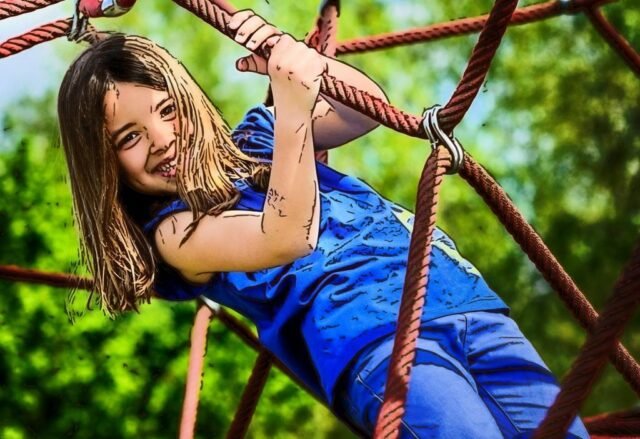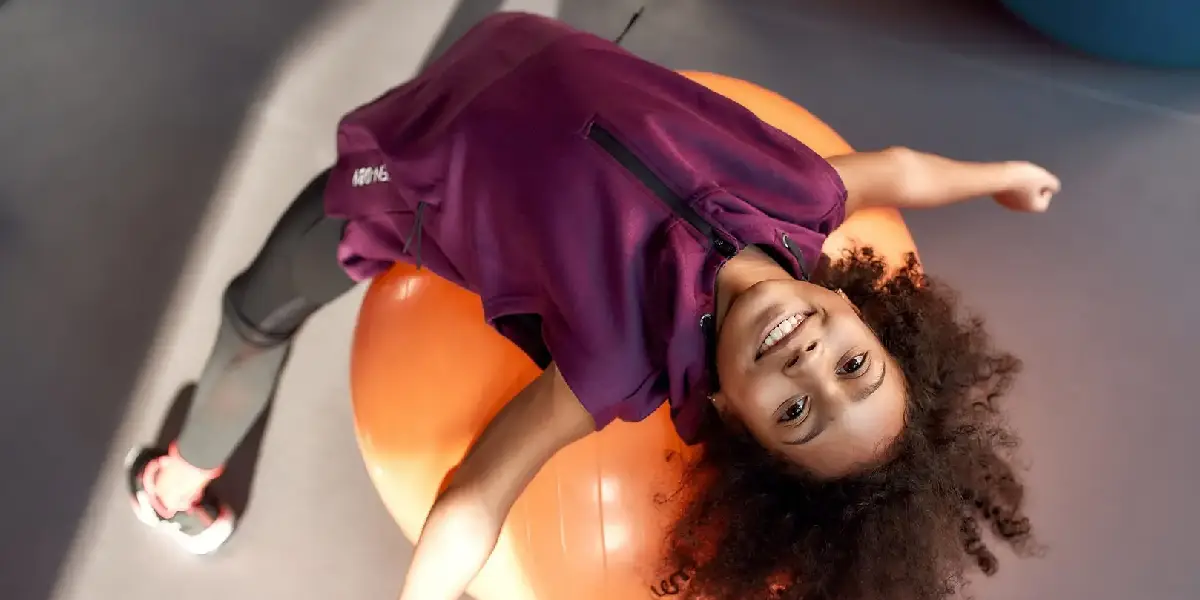Benefits of Physical Activity and Exercise for Children
hysically active kids are happier. A holistic approach to physical and mental wellbeing calls for exercise. Whether it’s dance, obstacle-course classes, team sports, or solo running, the importance of exercise for kids has been emphasized for years by leading pediatricians and mental health experts. In this blog, Mission Grit answers FAQs like “how much exercise should a child do?” and “why is physical activity important for child development?”
Why Should Kids Exercise?
No matter their age or time of year, keeping kids active is a necessary goal. An active lifestyle not only helps physical health but mental health too.
Benefits of Physical Activity for Kids’ Health
Regular physical activity improves cardiorespiratory fitness, builds strong bones and muscles, and controls weight.
Physically active kids stand a better chance at preventing noncommunicable diseases such as heart disease, stroke, diabetes, and several cancers.
Frequent exercise is also linked to the prevention of hypertension and cognitive decline, as well as improved sleep.
Advantages of Exercise for Kids’ Mental Health

Physical exercise like team building activities and group sports break mental rumination. Anxious kids tend to dwell on what stresses them out, but their stress is automatically reduced when they’re preoccupied and direct their focus elsewhere.
Reduced Anxiety
Increased heart rate reverses stress-induced brain damage by stimulating the production of neurohormones like norepinephrine, which improves cognition, mood, and thinking clouded by stressful events. One of the benefits of exercise for children is that it forces the body’s central and sympatric nervous systems to communicate with one another, strengthening the body’s overall ability to respond to stress.
Improved Relationships
Introverted kids or those who struggle to make friends benefit from group physical activity. Because the focus is on exercise and not socializing, they automatically feel less social pressure to make new friends. However, natural bonding occurs over shared experiences and common goals with time. For instance, joining one of Mission Grit’s weekly Xplore classes can help your kid make new friends and keep fit at the same time.
Improved Self-Esteem and Self-Confidence
Participating in sports increases self-efficacy. When kids do regular exercise, their stamina improves because results are tangible.
There is a substantial body of literature demonstrating the importance of physical activity for kids.
Studies found it enhances self-image and builds confidence in the physical body, and self. The recognition kids receive from family, friends, and social relationships they develop through involvement in sport also builds positive self-worth.
The Importance of Exercise for Kids’ Brain Functioning
Why is physical activity important for kids? According to Scientific American, exercise pumps more oxygen to the brain. This aids the release of hormones that stimulate the growth of brain cells.
Exercise promotes brain plasticity by stimulating new connections between cells in important cortical areas. As such, it leads to improved thinking, refined motor skills, stronger focus, better learning. When parents ask,” should kids work out?” Our answer is always, without a doubt.
How Much Exercise Does The Average Kid Get?

How much physical activity does a child need? According to the Centers for Disease Control and Prevention, kids should have 60 minutes of physical activity a day. [1]
Recommended daily exercise for a child also depends on their age:
- 1-3 years old: Children should be active for at least two to three hours a day. Babies that can’t sit or stand need active and tactile floor play, while toddlers should be encouraged to walk.
- 3-5 years old: Preschool-aged children should be physically active throughout the day. Caregivers and parents should encourage preschool-aged children to be active when they play.
- 6-17 years old: The recommended daily exercise for a child or adolescent is at least one hour or more of moderate-to-vigorous intensity physical activity each day, as well as exercises that build muscle and strengthen bones at least three days a week. Physical activity recommendations for kids include fitness camps, aerobics, and after-school sports.
Physical activity and child development are directly linked. Not only does exercise promote healthy bodies, but it also improves academic performance.
Conclusion
At Mission Grit, we’re passionate about children and exercise. We know that the kids and physical activity combination is a must to nurture healthy adults. If you’re looking for an extracurricular sports-orientated class for your kid, then why not try Mission Grit’s weekly classes? They’re designed to help your kid stay fit, develop character, and explore their potential. Contact us to claim your kid’s free trial class!
Sources:



